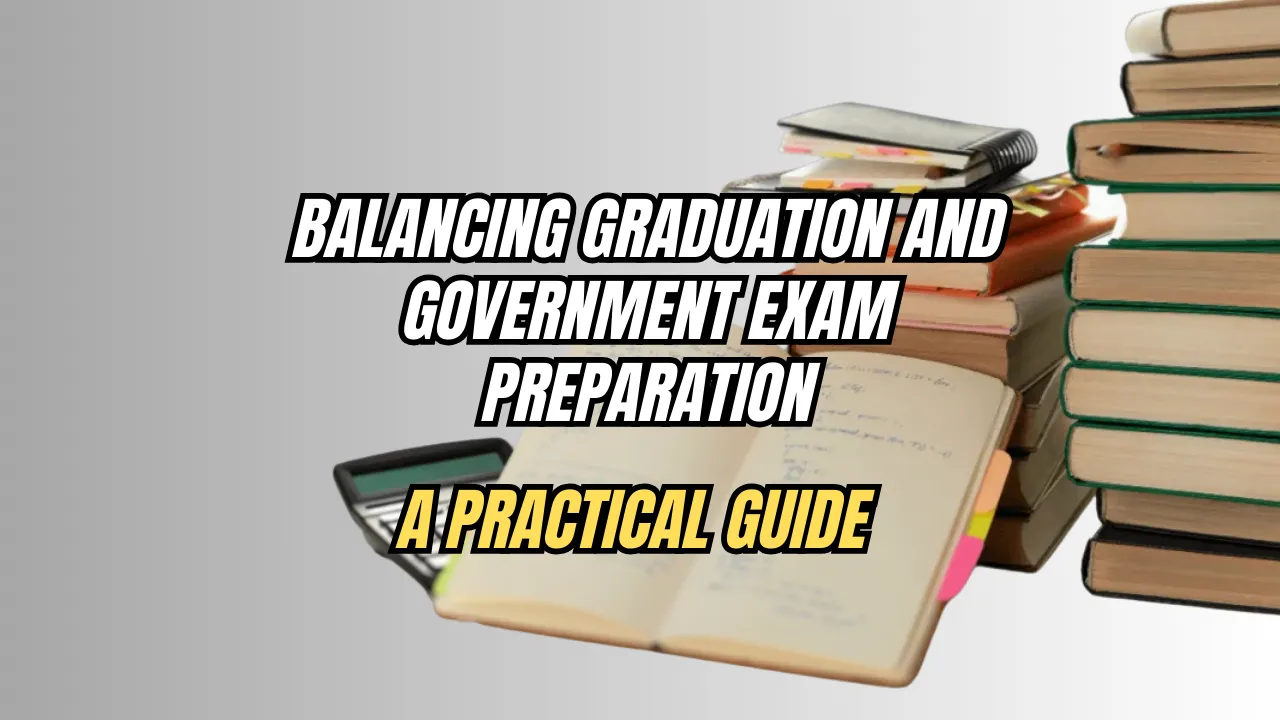Coaching vs.Self-Study: Preparing for government exams is a journey that requires time, dedication, and the right strategy. One of the most common dilemmas faced by aspirants is choosing between coaching vs. self-study for government exams. Both approaches have their own advantages and challenges, and what works best often depends on the individual’s learning style, financial situation, and level of self-discipline.
In this article, we will explore the pros and cons of coaching and self-study, compare them side by side, and help you decide which method aligns better with your goals.
Coaching vs. Self-Study for Government Exams
The debate over coaching vs. self-study for government exams has been ongoing for years. Some aspirants prefer the structured guidance and competitive environment of coaching institutes, while others rely on their discipline and prefer the flexibility of self-study. The decision ultimately depends on various factors such as your budget, time availability, learning preferences, and preparation style.
Overview Table
| Aspect | Coaching | Self-Study |
| Structure | Fixed curriculum, regular classes | Flexible schedule, self-designed plan |
| Guidance | Expert faculty, instant doubt clearing | Limited guidance, requires independent problem-solving |
| Study Material | Comprehensive materials provided | Requires searching and selecting resources on your own |
| Cost | Expensive, includes coaching fees and materials | Cost-effective, mainly depends on books and free/paid online resources |
| Pace of Learning | Fixed pace set by the institute | Self-paced, allows focus on weak areas |
| Environment | Competitive, motivating peers | May feel isolated at times |
| Discipline Requirement | Less self-discipline needed due to external structure | High self-discipline and consistency required |
| Flexibility | Limited, follows coaching’s schedule | High flexibility, study as per personal convenience |
| Customization | One-size-fits-all approach | Fully customizable to individual needs |
Benefits of Coaching
1. Structured Learning
Coaching institutes offer a pre-planned curriculum that covers the entire syllabus systematically. For candidates who struggle to organize their preparation, this structured approach ensures that no topic is left out.
2. Expert Guidance
Experienced teachers in coaching centers provide valuable insights, exam strategies, shortcuts, and techniques. They can also offer tips on how to handle tricky questions and manage time during the exam.
3. Quality Study Materials
Coaching institutes often provide well-prepared study materials, mock tests, and previous years’ papers. These resources are curated to match the exam pattern and difficulty level, saving you time on gathering study material.
4. Competitive Environment
Being surrounded by other serious aspirants creates a competitive and motivating atmosphere. This peer environment helps students stay focused and maintain momentum throughout the preparation.
5. Doubt Clearing
Coaching institutes provide platforms to ask questions and clear doubts immediately. Regular tests and feedback sessions help identify weak areas quickly.
Drawbacks of Coaching
1. High Cost
One of the biggest downsides is the high cost of coaching. Fees for reputed institutes can be a financial burden, especially for students from modest backgrounds.
2. Fixed Schedule
Coaching centers have fixed timings and schedules that may not suit everyone. Some candidates might find it difficult to balance coaching classes with other personal or academic commitments.
3. One-Size-Fits-All
Coaching classes are designed for the masses. They may not cater to individual learning needs, leaving little room for personalized attention or customized study plans.
Benefits of Self-Study
1. Flexibility
Self-study offers complete flexibility. You can set your own study hours, choose your own pace, and adjust your schedule based on your strengths and weaknesses.
2. Cost-Effective
Self-study eliminates the need for expensive coaching fees. Many free and affordable online resources, books, and test series are available to support your preparation.
3. Focused Learning
You can focus more on the topics you find challenging rather than following a generalized coaching curriculum. This targeted approach often results in better understanding.
4. Develops Independence
Self-study fosters independence and critical thinking. You develop problem-solving skills, self-motivation, and discipline, which are essential traits not only for exams but also for life.
Drawbacks of Self-Study
1. Lack of Guidance
Without expert teachers, navigating the vast syllabus can be difficult. It may take extra effort to figure out the best preparation strategies.
2. Requires High Discipline
Self-study demands strong self-control and regularity. Without a structured setup, it is easy to lose focus or procrastinate.
3. No Immediate Doubt Clearing
Unlike coaching institutes, resolving doubts instantly may not be possible. It may take time to research or find the right platform for clarification.
4. Isolation
Studying alone can sometimes feel monotonous or isolating, especially if you miss the camaraderie of peers.
Which One Should You Choose?
Choosing between coaching and self-study depends on several factors:
- Learning Style: Do you perform better in structured environments, or are you comfortable managing your schedule?
- Discipline Level: Can you stay consistent and focused without external guidance?
- Financial Situation: Can you afford coaching fees, or is self-study a more viable option?
- Time Availability: Do you have enough time to dedicate to coaching schedules, or would flexibility suit your routine better?
Hybrid Approach: The Best of Both Worlds
Many aspirants adopt a hybrid approach, combining the strengths of both coaching and self-study:
- Enroll in online or offline coaching for key subjects and expert guidance.
- Supplement coaching with self-study, focusing on mock tests, current affairs, and revision.
- Use online platforms, YouTube lectures, test series, and study apps to further reinforce preparation.
FAQs
1. Is coaching necessary to clear government exams?
No, coaching is not mandatory. Many candidates have successfully cleared government exams through disciplined self-study and consistent practice.
2. Which is more cost-effective: coaching or self-study?
Self-study is more cost-effective as it avoids coaching fees. With the availability of free online resources and affordable books, it is budget-friendly.
3. Can self-study match the quality of coaching?
Yes, with the right study materials, structured plan, and consistent effort, self-study can be equally effective as coaching.
4. What if I lose motivation during self-study?
Joining online forums, study groups, or periodically attending workshops/webinars can help maintain motivation.
5. Should I opt for a hybrid preparation method?
Yes, if you want the flexibility of self-study along with expert guidance, combining both methods is often the most effective approach.
Final Thought
The choice between coaching vs. self-study for government exams ultimately depends on your personal preferences, discipline, budget, and learning style. Both methods have proven successful for candidates. The key is consistency, dedication, and smart study strategies. Evaluate your situation carefully and choose the approach that keeps you motivated and prepared to achieve success in your government exam journey.











